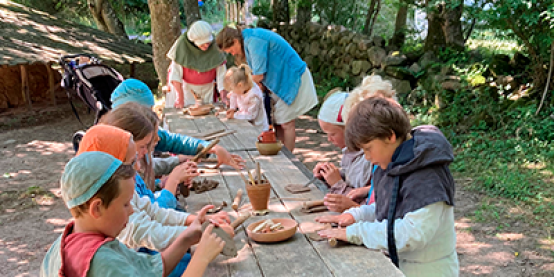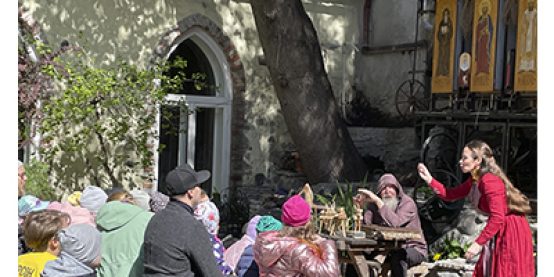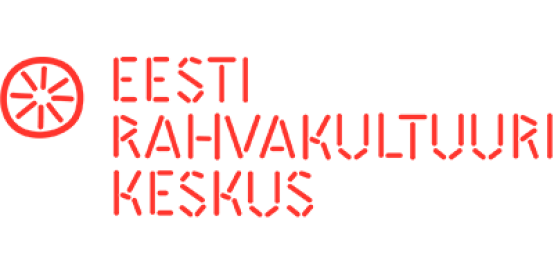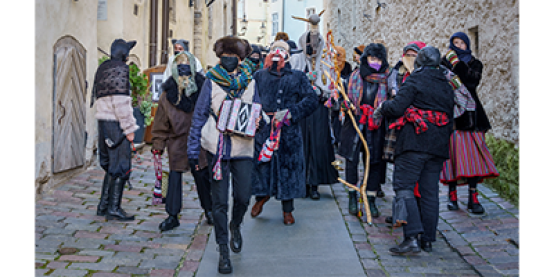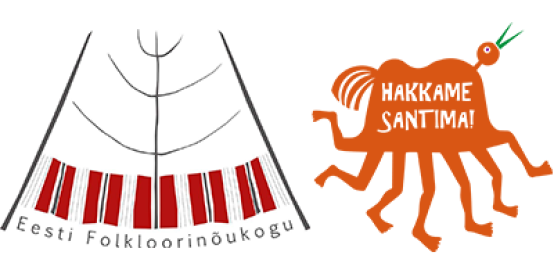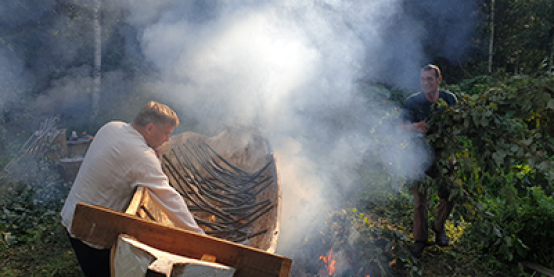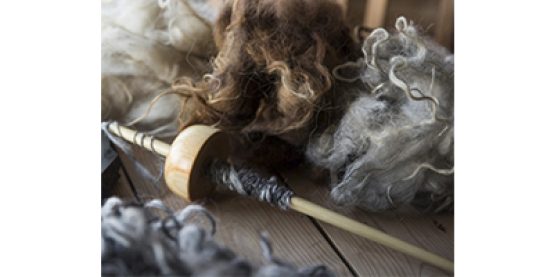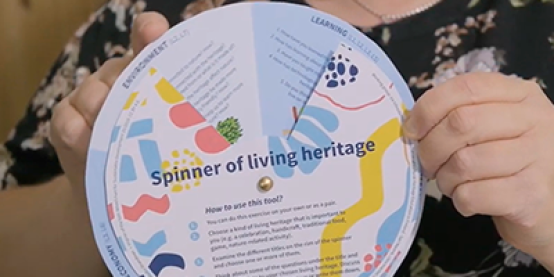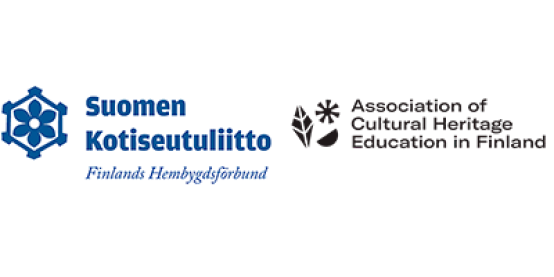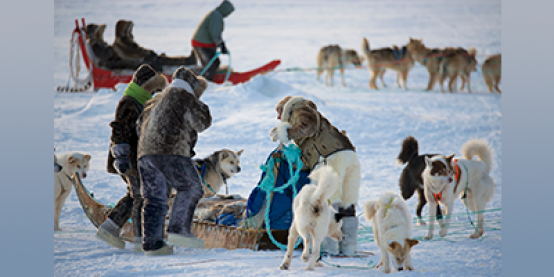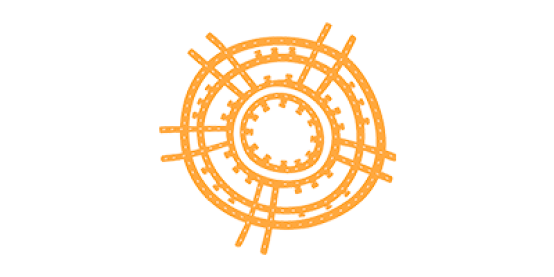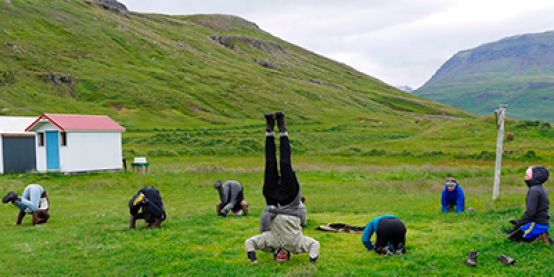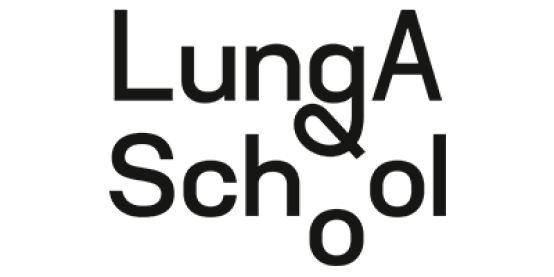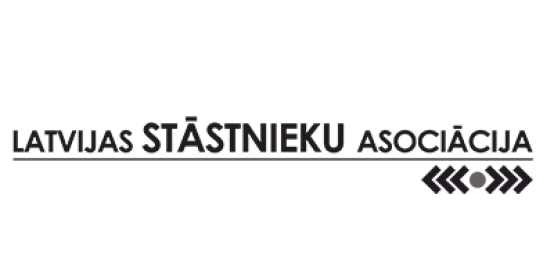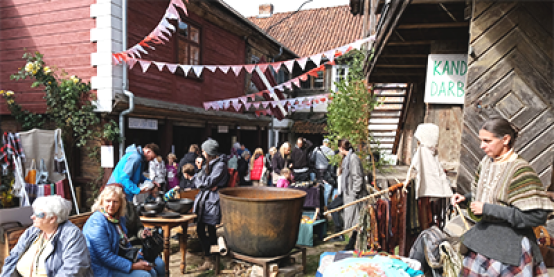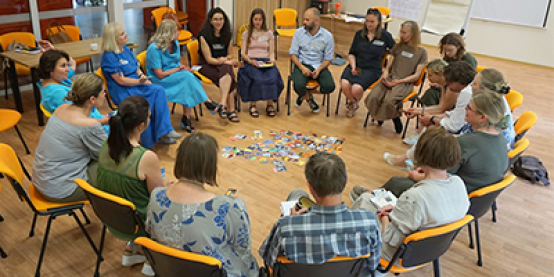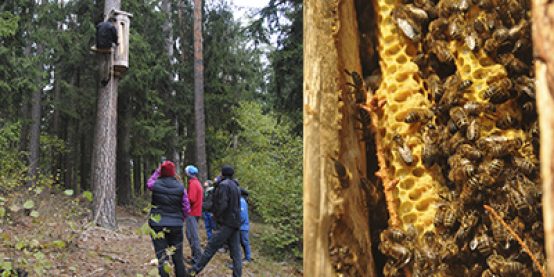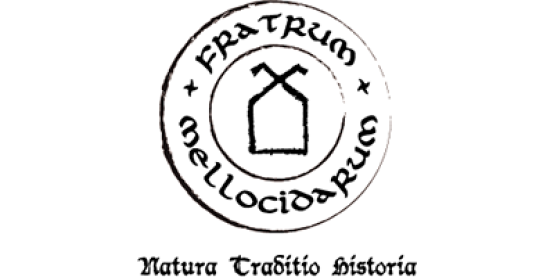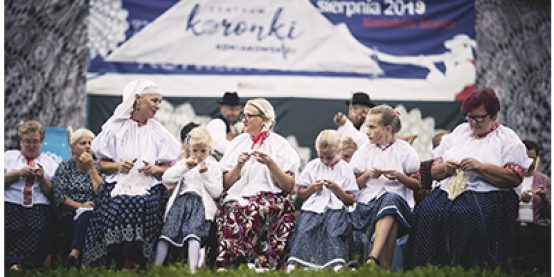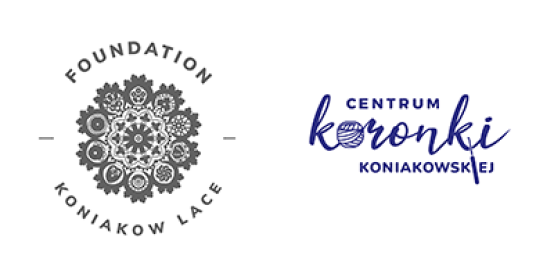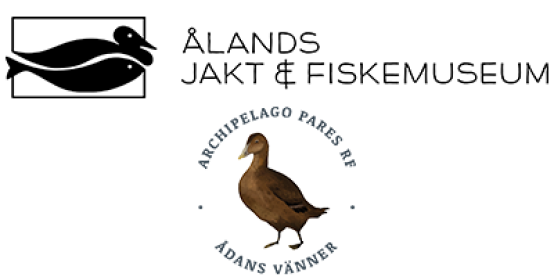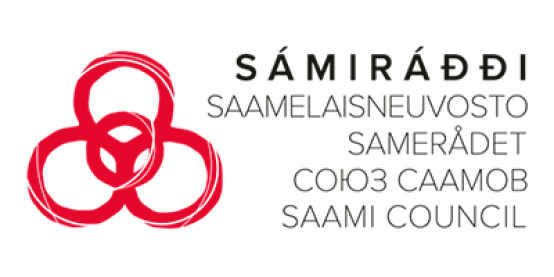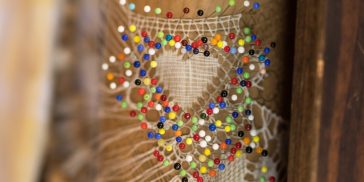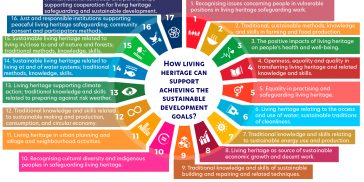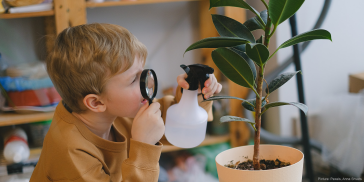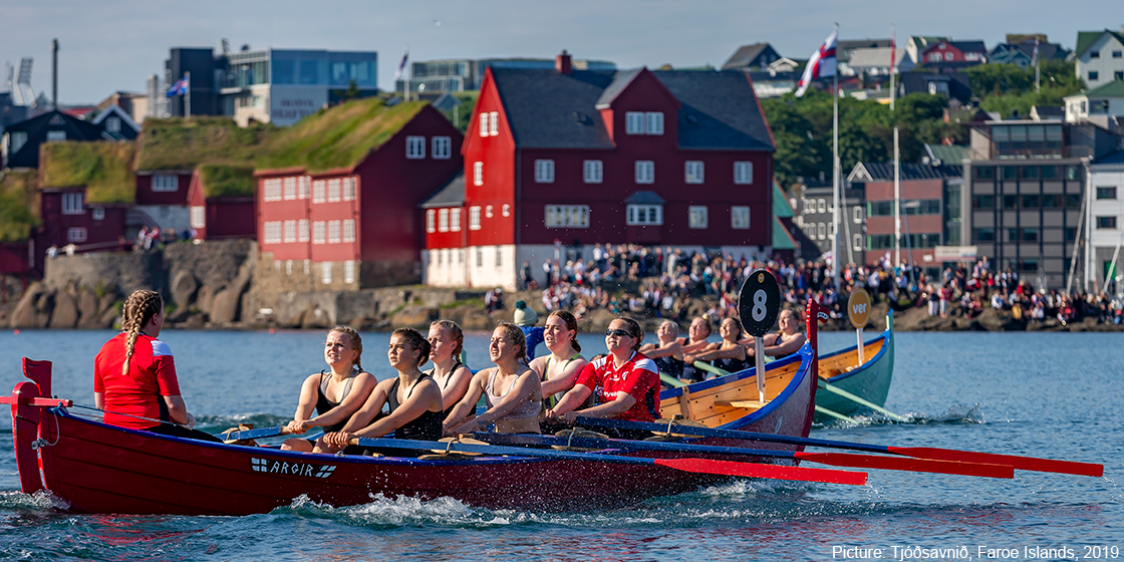
LIVIND Pilot Projects
LIVIND Pilot Projects are at the core of our project! Twenty initiatives from across the nine project countries work to test and develop different ways of working, methods, tools, and approaches, to strengthen the links between safeguarding living heritage and the different aspects of sustainability. In the LIVIND project we believe that taking sustainability thinking into action step by step is the way forward! Here you find short introductions to the spectrum of pilot projects that are funded (fully or in part) by the LIVIND project.
The Medieval Pottery Hub – Bornholm, Denmark
Bornholms Centre for Medieval Times heads to develop their pottery workshops into a new era and widen their scope of participants. They want to develop and test concepts for workshops so that they better serve local children and teenagers.
"We want to lift our education on historical pottery and clay, so that it will benefit a larger group of local children and teenagers in the future, with special attention to the socially exposed groups. The main goal is to have our pottery activities work as a hub for medieval handcrafts, small-scale production of utensils from natural resources, story-telling, and local community building."
Pilot Project Manager: Bornholms Middelaldercenter
Storytelling festival "Ööbikuööd" – Estonia
The Festival “Ööbikuööd” (The Nights of the Nightingale) has been created to focus attention on storytelling as a timeless and significant cultural phenomenon, as well as to enable experiencing our living heritage in a wide variety of forms. The main goal of the storytelling festival is to unite people and communities at the grassroots level supporting the sense of communities and safeguarding oral expressions as an important factor of social sustainability.
"Storytelling unites people. A commonly perceived experience of storytelling can help bring people closer to each other and foster mutual support and understanding in crises, and make sense of the world. Such experience may even be therapeutic and have a positive effect on the spiritual level."
Pilot Project Manager: Estonian Centre of Folk Culture
Photo: Storytelling event in the Ukrainian Cultural Centre in Tallinn, photo by Maili Metssalu
“Let’s Get Mumming!” – Estonia
The initiative “Let’s Get Mumming!” ("Hakkame Santima!") was created in 2018 with the aim to raise awareness about Estonian mumming traditions, to inspire more people to dress up as characters, prepare programmes, and go from door to door on St Martin’s and St Catherine’s Day. The pilot project helps supporting the sustainability of this old tradition through different activities including a specific outdoor campaign.
"Mummers’ costumes and accessories are usually made of what is found at home. Reusing, recycling and preferring second-hand solutions is good for the environment and magnifies the message of responsible consumption. This is also the reason, why we co-operate with Estonia’s biggest re-use organization as our partner – to raise as much awareness as possible."
Pilot Project Manager: Estonian Folklore Council
Photo: St Martins Day mummers, photo by Rene Jakobson
Dug-out boats masterclass – Soomaa, Estonia
The main threat for the preservation of dugout boat culture is the interruption of the continuity of transmitting dugout boatbuilding skills during the next decades due to a small “pipeline” of future masters and the demographic profile of current masters. This pilot project aims at increasing the number of young people participating the dug-out boat workshops with special attention on gender balance, too.
Pilot Project Manager: Karuskose OÜ
The cultural history of peat as a new resource – Svínoy, Faroe Islands
Today, there is no need for peat as a source of heating and fuel for cooking, but by keeping the old skills and traditions alive the Útoyggjafelagið is testing how those can become a new kind of resource. The expected result of the project is a local community that is better informed and able to better take care of its resources.
"We are looking to passing on knowledge and practices related to peat cutting and its importance for survival in the Faroes from the time of landnám to the present and to find ways to keep the knowledge and skills alive on the island of Svínoy. We want to find a sustainable, small scale use of peat so that the centuries old practices will contribute to understanding the past as well as being a part of the survival of the present community on the island."
Pilot Project Manager: Útoyggjafelagið
Wonderful Wool – Kollafjørður, Faroe Islands
This pilot tests a new festival about raw wool on the Faroe Islands. At this phase a one-day event, it is aimed at families. Morning and afternoon workshops allow children to touch, test and make small samples out of raw wool. Children learn about raw wool in the natural surroundings on the Faroes, e.g. that birds can get stuck in wool and that picking wool up from fences and fields can help. There will be a small survey to develop the event further.
"Our primary goal is to diminish wool waist by increasing awareness, so that more people bring wool to the wool collection, or use it themselves. In turn, reducing the amount of wool discarded and not being used. We hope that people who normally do not use wool will get their hands on it, become aware of it, and hopefully use more of it. By encouraging people to work with it themselves but also by wearing more woollen clothes, that others make. We aim at having this wool festival as an annual event."
Pilot Project Manager: Búnaðarstovan (Agricultural Agency of the Faroe Islands)
Let it spin! – Rovaniemi, Mikkeli & Jyväskylä, Finland
This project implements workshops that help disseminate The Spinner of Living Heritage, a tool recently published in the LIVIND-project and developed by Association of Cultural Heritage Education and Finnish Heritage Agency. The Spinner works as a tool for dialogue in workshops that utilize the awarded model of Masters and Apprentices, a method developed by Finnish Local Heritage Federation that supports inter-generational dialogue and exchange.
"This way of working itself promotes social sustainability (inter-generational communication, dialogue, learning) and cultural sustainability (inclusion and diversity). Through workshop activities, the role of intangible cultural heritage in promoting a sustainable lifestyle will become familiar also to educators and will spread further with them."
Pilot Project Manager: Association of Cultural Heritage Education together with Finnish Local Heritage Federation
A Handicraft seminar – Nuuk, Kalaallit Nunaat (Greenland)
The Greenland National Museum and Archives organizes a seminar to bring together craftspeople from different places of Kalaallit Nunaat to discuss together sustainability in the making and consumption of traditional clothing with special focus on seal skin. A booklet will be compiled to document and share viewpoints and knowledge.
"We believe that the seminar will contribute to how sustainability is thought about in different contexts: within the choice of materials for crafts but also in related business and tourism. The seminar can continue in the future with adaptions to other focus areas of living heritage."
Pilot Project Manager: Nunatta Katersugaasivia Allagaateqarfialu / Greenland National Museum and Archives
Picture: People wearing seal skin as clothes, Adam Lyberth, Visit Greenland.
The Land pilot project – Seyðisfjörður, Iceland
The LungA School is testing a new curriculum of traditional practices related to nature. The objective of the pilot project on living heritage and land practices is to reach the younger community and to connect children, youth and young adults with their environment, the land and themselves.
"Climate Emergency shapes this pilot project as we have come to witness a town whose once-thriving fishing industry for herring vanished due to the warming waters in the fjord. In Seyðisfjörður, the climate poses unique extremes. Its harsh winters, small-town population, and rapid socio-economic shifts since the 1950s are fascinating examples of this town’s living heritage."
Pilot Project Manager: LungA School
Stories of names – Vidzeme (historical land), Latvia
This pilot project concentrates on how stories of names and family names create part of community cultural space - an identity landscape. Sharing of those stories gives possibility to understand similarities and peculiarities of families, common traditions and their local specificities. The project looks to oral storytelling as a tool to develop soft skills for young people, to transmit local dialect and see storytelling development for better life experience through workshops at libraries and community centres.
"With the project 'Identity landscape: stories of names and family names as part of community cultural space' we indicate that by telling the stories of names and surnames, meaningful to everyone, a closer community is formed, a community that is aware of its stories, documents them and passes them on to future generations."
Pilot Project Manager: Latvian Storytelling Association
Traditions of fermented food – Dienvidkurzeme county, Aizpute, Latvia
This project heads to document stories about fermented food with old recipes and personal stories about how and when fermented food was used. Based on this, there will be created a travelling kitchen with posters and placards to increase awareness about fermented food traditions especially among the younger generations.
"The pilot project will make this almost forgotten tradition more visible, promote good health and well-being, and responsible consumption and production. The final workshops will gather all storytellers, project participants and their families, and tourists who are interested in local food traditions."
Pilot Project Manager: Interdisciplinary art group SERDE
Sustainability for the Mushroom Festival – Varena, Lithuania
A two-stage project with several workshops concentrates on developing a sustainable approach to organising the well-established Varėna Mushroom Festival (since 1987) in southern Lithuania (Dzūkija region). As an outcome of the pilot, a sustainability plan for the festival will be created that will also help sharing the results of the project with the local policy makers of the Varėna municipality.
"The pilot project aims at building an inter-institutional network of local stakeholders and communities involved in safeguarding and preservation of mushroom picking tradition and organisation of the festival as one of the means of raising the awareness of the tradition."
Pilot Project Manager: Lithuanian National Commission for UNESCO together with Lithuanian National Culture Centre
Picture: Workshop in action, autumn 2022. Picture by Broliai Černiauskai.
Folk dance supporting social sustainability – Røros, Norway
The pilot project will be implemented alongside an exhibition about dance at Rørosmuseet. Built on several events that address folk dance both in words and in action, e.g. through panel discussions and dance events, this pilot gives opportunities to meet people and talk about the value of social dances as a form of social sustainability and to build contacts between local dance community, museums, and schools.
"We see that there is a need to talk and to give folk dance the status and attention as supportive to social and cultural sustainability. Arranging events addressing the value of dance in collaboration with a local network helps to sustain the dance community in Røros."
Pilot Project Manager: Norwegian centre for traditional music and dance
Polish-Lithuanian tree beekeepers integration – Augustow Forest, Giby, Poland
The pilot project is dedicated to integrate the communities of tree-beekeepers from Poland and Lithuania (Dajnava Forest) by organizing a workshop in Augustow Forest, Poland, to share and learn from each other about the respective local tree-beekeeping traditions.
"Tree beekeeping culture is an element on the UNESCO ICH representative list since 2020 as Polish-Belarus element. This tradition is kept also in Lithuania and Ukraine, and it is important to keep and strengthen bilateral and multilateral contacts between bearers."
Pilot Project Manager: Bractwo Bartne
Treasures of Koniaków lace – Koniaków, Poland
This project celebrates lace specific to Koniaków village in Silesia, Poland. An exhibition of crocheted head coifs will be created along with a film that demonstrates the wedding dance ritual where the newly wed woman starts to wear the head coif. In addition, the project offers workshops that encourage younger generations to learn the techniques of making the Koniaków lace.
"The completion of the project, consisting of exhibit of oldest coifs and their use will contribute to protection of this living heritage. The workshops will enliven the community bringing together several generations which will result in stronger cultural ties and exchange of experience."
Pilot Project Manager: Koniaków Lace Foundation
Revitalisation of Roma crafts – Skåne county, Sweden
The main objective of this pilot project is to create conditions that promote the revitalisation of the Roma crafts and, in long-term, to create opportunities for Roma youth to be trained as gold and silversmiths with long-term goals. In addition to workshops, at the core of the pilot project is to create an exhibition of Roma crafts that will give the oppurtunity to show Roma crafts and also to create new contacts with various museums in the region.
Pilot Project Manager: Romska Kulturcentret i Malmö (Roma Cultural Centre in Malmö)
Fäbod camp activities for the young – Sweden
This pilot project aims to develop a handbook and other practices to support bearers of 'fäbods' or shacks, sort of small-farms originally intended for cattle's summer grazing, to increase children and young people’s participation to camp activities on the 'fäbod' farms.
"There are a number of shack owners who have camp activities and many who would like to, but who feel uncertain about how to go about it. We want to remedy this by letting those who "think" meet "those who do" and together develop checklists, tips and ideas to enable more activities for children and young people."
Pilot Project Manager: The Swedish Fäbod Culture and Field Farming Association (FSF)
Birdhouses to the archipelago – Eckerö, Åland
This pilot project picks up on one of the bird-friendly practices related to hunting traditions on the Åland islands. As part of the traditional spring hunt of sea birds on Åland, local hunters would bring birdhouses for the common merganser out to the smaller islands in the archipelago.
"Since the spring hunt was banned in 2020, birdhouses have been brought out to the islands to a far lesser extent creating a more hostile environment for the common merganser. In this project, traditional birdhouses will be made and placed on small islands during the spring as per the old local tradition. This helps the sea birds by giving safe nesting grounds especially for the common merganser."
Pilot Project Manager: Ålands Jakt- och Fiskemuseum together with Archipelago Pares
IP tools for Sámi handicrafts – Sápmi (Jokkmokk - SE), Sweden, Norway, Finland
Together with the duodji makers (trad. Sámi handicrafts) the Saami Council wants to raise awareness among the Sámi community on the way intellectual property tools can be utilised in Sápmi in a manner that creates value for communities. The pilot project delivers a "dialogue around the fire" at the famous Jokkmokk winter market and an informational film that will be distributed online.
"We believe this project will motivate Sámi duodji and industry actors to use IP tools, as for example the Sámi trademarks Sámi duodji and Sámi Made. When the Sami community uses IP tools to a greater extent than at present, such as trademarks, they will also act as a guide for non-Sami consumers on how to buy Sami products in a way that is sustainable for the Sami society and for Sami culture."
Pilot Project Manager: Saami Council
Podcast series about ICH and SD – Nordic and Baltic ICH Network
This pilot project delivers a series of three professional podcast publications about intangible cultural heritage and sustainable development. The target group of the podcasts are different NGO's, ICH practitioners, tourists and municipalities with ICH elements in their area.
"We hope to reach many listeners from different countries working with ICH elements. The language will be English, so the podcasts are easily accessible for a larger audience as well and the podcasts can encourage people to consider their own relationship to cultural heritage. We hope this Nordic and Baltic ICH Network project will open a new way to develop deeper co-operation between the participants and contribute to awareness raising of Nordic and Baltic ICH safeguarding."
Pilot Project Manager: Nordic and Baltic ICH Network / Finnish Folk Music Institute
